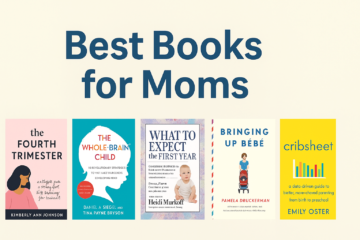
Parenting play a important role in shaping a child’s personality, confidence, and emotional health. There is a type of parenting, called uninvolved parenting (or neglectful parenting), can have a negative impact on children. In this style, parents just provide for basic needs like food and shelter but they don’t give enough attention to their child’s emotional or social growth.
Let’s take a closer look at what uninvolved parenting is, how it affects children, and how parents can improve.
What Is Uninvolved Parenting?
Uninvolved parenting is when parents are disconnected from their child’s life. They may ensure their child has food, clothes, and a home, but they don’t actively support their child with emotional, social, or academic needs.
This lack of attention and care can leave your kids feel unloved, lonely, and unsure of themselves.
Differences from Other Parenting Styles:
| Parenting Style | Key Traits |
|---|---|
| Authoritative | Supportive, sets boundaries, nurtures |
| Authoritarian | Strict, high expectations, limited warmth |
| Permissive | Emotionally supportive, few rules |
| Uninvolved | Detached, neglectful, minimal involvement |
Signs of Uninvolved Parenting
Here are some common signs of this parenting style:
- Little Supervision: Parents don’t check on what their child is doing, who they spend time with, or how they’re doing in school.
- No Emotional Support: Parents rarely show affection, encouragement, or warmth.
- Few Rules or Expectations: They don’t set clear rules or goals for behavior or achievements.
- Detached Behavior: Parents seem focused on their own needs, not their child’s.
How Does Uninvolved Parenting Affect Kids?
Uninvolved parenting can cause many challenges for children as they grow up. These include:
- Low Confidence: Without support and encouragement, kids may feel like they’re not good enough.
- Trouble in School: A lack of involvement can make it hard for kids to stay motivated and do well academically.
- Behavior Problems: Without guidance, kids may struggle to follow rules or understand boundaries.
- Emotional Struggles: Kids might feel abandoned or unloved, this can lead to sadness, anxiety, or depression.
- Difficulty Trusting Others: A weak bond with parents can make it harder for kids to build healthy relationships.
Why Does Uninvolved Parenting Happen?
Neglectful parenting often isn’t intentional. It can happen for several reasons:
- Personal Problems: Parents dealing with stress, mental health issues, or addiction may become emotionally unavailable.
- Lack of Knowledge: Some parents don’t realize how important it is to be actively involved in their child’s life.
- Their Own Childhood: Parents who were neglected as children may accidentally repeat the same behavior.
- Busy Lives: Parents juggling work and responsibilities might struggle to give enough time to their child.
How to Improve and Be More Involved
It’s never too late to change and become a more engaged parent. Here’s how:
- Recognize the Problem: Notice if you or someone you know shows signs of uninvolved parenting.
- Ask for Help: Seek therapy or counseling to work through personal struggles and learn better parenting habits.
- Spend Time Together: Make time for family meals, playtime, or just talking. Small moments matter.
- Talk and Listen: Encourage your child to share their thoughts and feelings. Show them you care.
- Learn About Parenting: Read books, watch videos, or join workshops to understand how to meet your child’s emotional and social needs.
Why Being Involved Matters
When parents become more involved in their child’s life, the benefits are incredible:
- Happier Kids: Children feel loved, supported, and confident.
- Better in School: Kids tend to do better academically when parents show interest in their learning.
- Stronger Bond: Spending time together builds trust and strengthens the relationship.
- Emotional Strength: Kids learn how to handle their feelings and deal with challenges.
Read More: Japanese Girl Names ,Japanese Boy Names ,Korean Girl Names, Korean Boy Names .
Final Thoughts
Uninvolved parenting can leave children feeling alone and unsupported, but it’s possible to make changes. By showing love, spending quality time, and being present, you can create a stronger bond with your child and help them grow into a confident, happy person.
Parenting is all about learning and improving. Even small steps can make a big difference in your child’s life. Remember, it’s never too late to start!
If you’re on this journey or have questions, feel free to share your thoughts! Let’s learn together.
FAQs About Uninvolved Parenting
1. What is uninvolved parenting?
👉Uninvolved parenting is a style where parents are emotionally detached, provide minimal guidance, and show little interest in their child’s life.
2. What are the signs of an uninvolved parent?
👉Signs include lack of supervision, emotional distance, inconsistent discipline, minimal communication, and low engagement in activities.
3. How does uninvolved parenting affect children?
👉Children may struggle with low self-esteem, behavioral problems, academic challenges, and difficulty forming healthy relationships.
4. What causes parents to be uninvolved?
👉 Stress, work pressure, mental health issues, lack of parenting knowledge, or personal neglect can contribute to this parenting style.
5. Can children recover from uninvolved parenting?
👉Yes. With therapy, mentorship, emotional support, and nurturing relationships, children can overcome the effects of neglect and thrive.



0 Comments